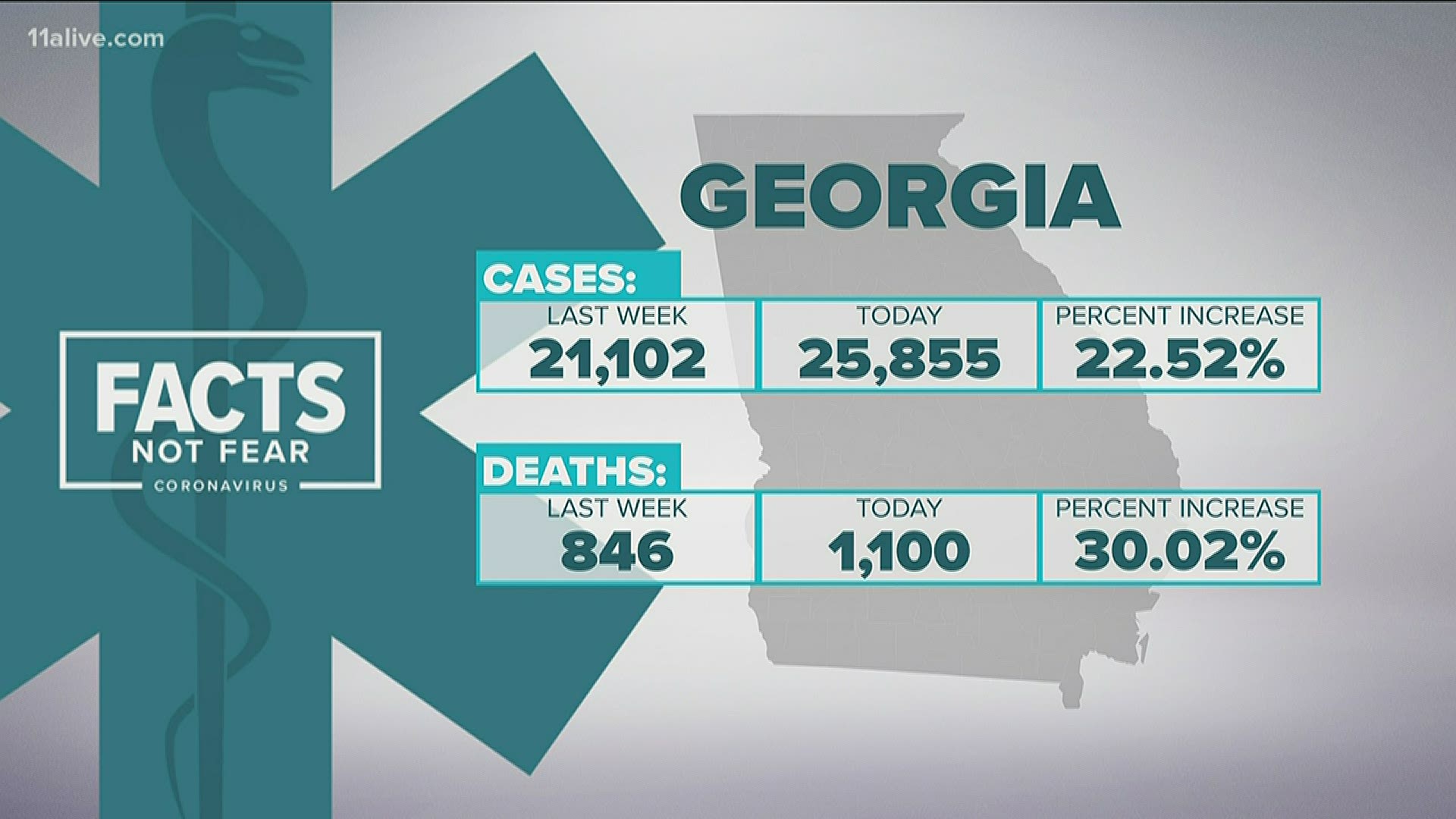ATLANTA — UPDATE: Gov. Kemp officially extended public health state of emergency and a shelter-in-place order for the medically fragile and elderly until June 12.
He also extended an executive order outlining special protocols for nursing homes and senior living facilities and another order authorizing the National Guard to assist in the COVID-19 response.
Original story below
When the clock strikes midnight on Thursday night and April becomes May, the shelter-in-place order that Gov. Brian Kemp issued at the beginning of the month is set to expire.
While business restrictions began relaxing last week, technically individual citizens were still barred from anything other than the essential travel outlined in the shelter-in-place order.
The governor has not indicated if he will issue a new order or not, detailing the steps ahead, as he did in setting out a course for reopening businesses. His office said there were no press conferences scheduled for Thursday.
With the most stringent restriction in the battle against COVID-19 that Gov. Kemp has issued set to end, here are some things to keep in mind:
It's not the end of all restrictions
The governor still has a public health emergency declaration in place, which will continue to enforce some specific restrictions.
Under another order issued last week, "Providing guidance for reviving a healthy Georgia in response to COVID-19," Gov. Kemp laid out continuing guidelines under his public health emergency declaration, which is set to continue until May 13.
This is the same order that laid out the list of 39 regulations restaurants must abide by as they began opening on Monday.
It also laid out requirements for businesses to operate and bring employees into the office, and continuing guidance for sectors like healthcare and education.
For the full document see below:
It's not the end of shelter-in-place for everyone
The governor has stated and his order makes clear that individuals who fall into certain categories - the medically fragile and elderly - will be expected to continue to stay at home until at least May 13, except for necessary travel and to receive essential services.
The governor's order last week laid out the exact criteria for those considered too vulnerable to yet go outside:
- Those persons who are 65 years of age or older.
- Those persons who live in a nursing home or long-term care facility, including inpatient hospice, assisted living communities, personal care homes, intermediate care homes, community living arrangements, and community integration homes.
- Those persons who have chronic lung disease.
- Those persons who have moderate to severe asthma.
- Those persons who have severe heart disease.
- Those persons who are immunocompromised. Many conditions can cause a person to be immunocompromised, including cancer treatment, smoking, bone marrow or organ transplantation, immune deficiencies, poorly controlled HIV or AIDS, and prolonged use of corticosteroids and other immune weakening medication.
- Those persons, of any age, with class III or severe obesity.
- Those persons diagnosed with the following underlying medical conditions: diabetes, liver disease, and persons with chronic kidney disease undergoing dialysis.
It's not clear how local communities may proceed
One difference between the order reopening businesses and what will take place Thursday is that the governor's order to reopen businesses was a new order that superseded any local authorities from requiring businesses to continue to stay shut.
Right now, there is no new order for this matter. The old order is simply set to expire.
While the governor's original shelter-in-place order superseded what city and county governments had put in place requiring residents to stay home in the days before Gov. Kemp issued statewide restrictions, what's not yet clear is if those city and county orders can be reimposed in the absence of any order from the governor.
11Alive reached out to three of the largest city and county governments in the area that had issued such orders back in late March to see what their plans might be:
- Cobb County Chairman Mike Boyce has no plans to reissue any such order or issue a new one, per a spokesperson
- In DeKalb County, we were directed to county CEO Michael Thurmond's order issued last week which asks residents to wear masks and businesses to go above and beyond Gov. Kemp's requirements.
In the city of Atlanta, Mayor Keisha Lance Bottoms' stay-at-home order issued March 26 technically never lapsed. Under city code, it has been renewed every 72 hours throughout April.
The mayor's office provided this statement on the subject of the future of the order:
The Mayor has a strong working relationship with the Governor, but disagrees with him on this particular matter.
The Mayor’s Advisory Committee to reopen Atlanta has convened and is working to present their recommendations to the Mayor by May 15th.
Mayor Bottoms will continue to act in the best interests of Atlanta residents, and use her voice to urge everyone to follow guidance from medical professionals and stay home.
What's clear is that while the order will expire at midnight April 30, if a new order doesn't take its place, it will create a potential legal gray area for local authorities.
Life is beginning to resume in Georgia, but there remains much uncertainty about exactly how it will look.
11Alive is focusing our news coverage on the facts and not the fear around the virus. We want to keep you informed about the latest developments while ensuring that we deliver confirmed, factual information.
We will track the most important coronavirus elements relating to Georgia on this page. Refresh often for new information.
MORE CORONAVIRUS HEADLINES

